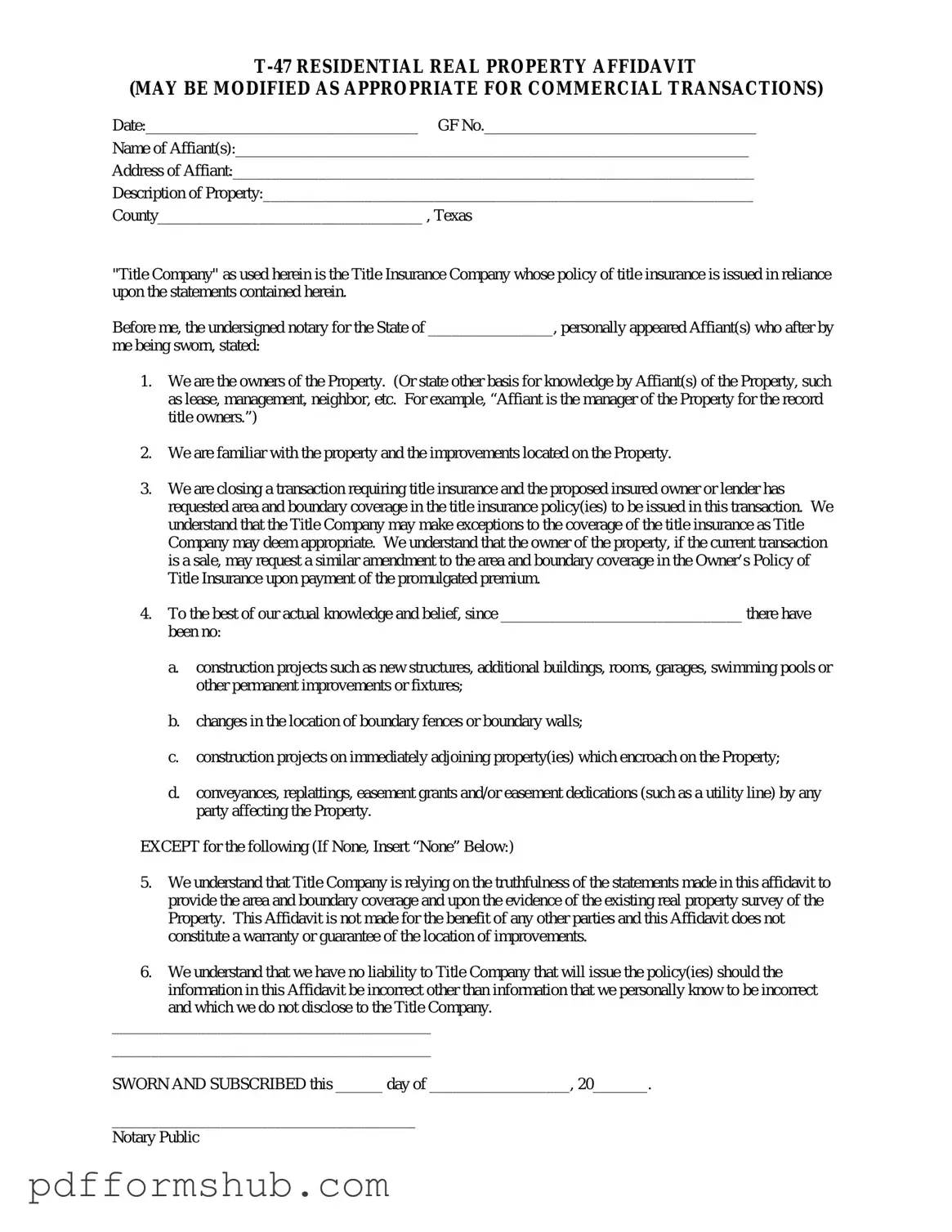Fill in Your Texas residential property affidavit T-47 Form
The Texas residential property affidavit T-47 form is a crucial document used in real estate transactions, specifically designed to confirm property ownership and the absence of any liens. This form helps streamline the closing process by providing essential information to lenders and title companies. If you're ready to fill out the T-47 form, click the button below!
Customize Form

Fill in Your Texas residential property affidavit T-47 Form
Customize Form

Customize Form
or
Free PDF Form
Short deadline? Complete this form now
Complete Texas residential property affidavit T-47 online without printing hassles.